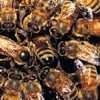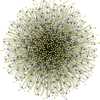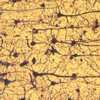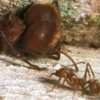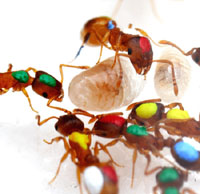This course was taught in Spring 2008.
It will be on offer again, but possibly not until Fall 2011 or later.
If you are a student interested in the course, drop me an email, so I can judge how many people would like to take it.
What is a complex system? What does networks theory have to do with biology? Biologists have discovered that many biological systems, from embryos to ecosystems, can be considered
"complex systems", in that many units interact without central control to form complicated patterns. How do such patterns arise? What can we learn from a 'holistic', system-wide approach?
We will discuss current and classic literature on complex systems research at multiple levels, including gene regulatory networks, neural net(work)s, ecological networks, and social networks. We will try to identify the commonalities of these systems and what is so exciting about 'systems biology'. We will also discuss what types of models are used to describe and study self-organization and networks in general.
Students will be allowed to pick some topics for the course that are most relevant to their interests - the schedule below is therefore preliminary and flexible.
Grading: there is no end-of-term paper or exam. The main assignment is to prepare a presentation and discussion session (including a one-page handout) and to write or revise a "Wikipedia" entry related to the topic of your presentation. Grades are also based on participation in discussions, and reading the readings.
open sections of this course:
496H,
596H
Please note that the first class will be on January 23rd (no class on January 16th).
Please email me if you have questions about the course: dornhaus

email.arizona.edu
Instructor: Anna Dornhaus
I'm a biologist with a special interest in collective behavior and cognition (esp. 'collective intelligence'). I work with social insects, particularly bumble bees, honey bees, and ants.
check out
my lab webpage,
department webpage, or
personal webpage
Feel free to contact me with questions about the course or
if you are interested in working in my lab:
dornhaus

email.arizona.edu
